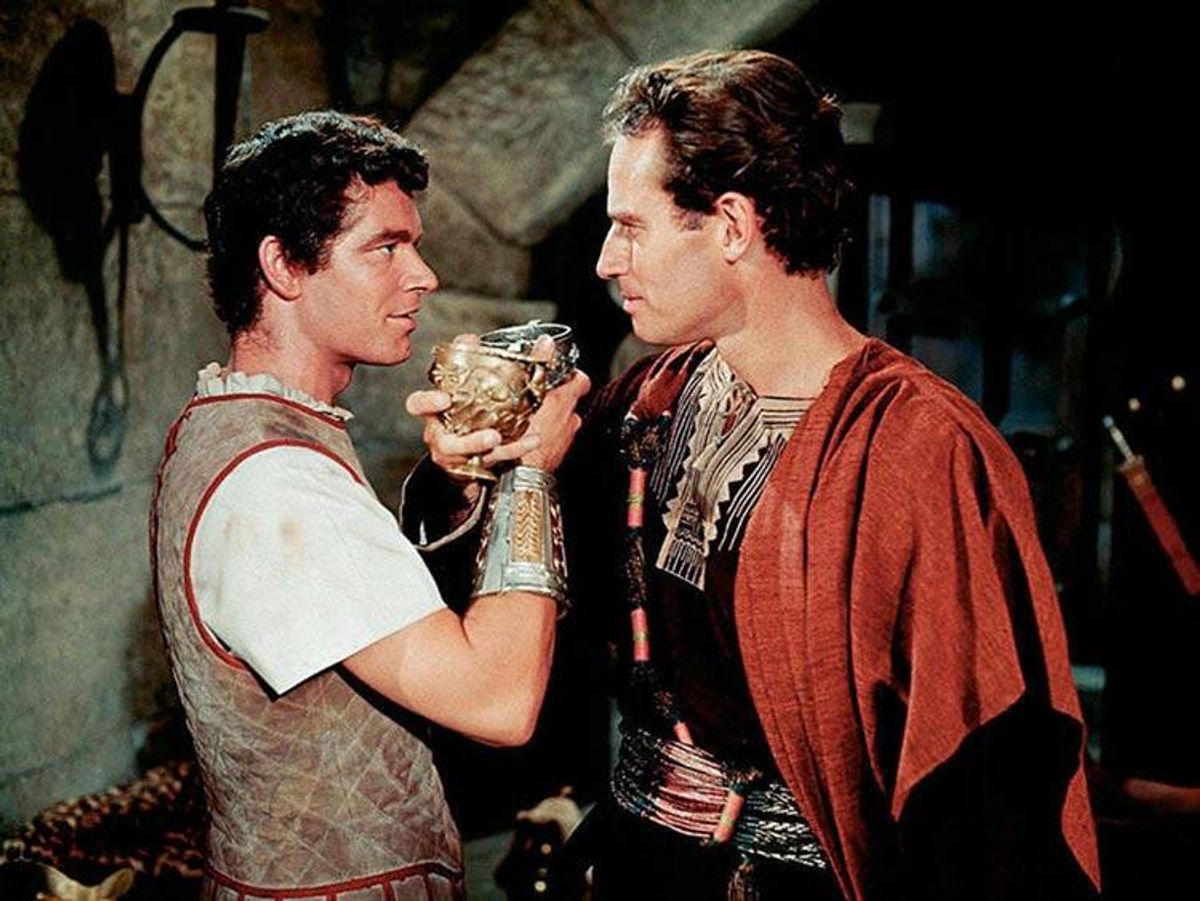Gore Vidal is turning over in his grave.
The late, great man of letters caused a firestorm when he revealed in the 1995 documentary The Celluloid Closetthat he had added a gay subtext between the lead characters in the Ben-Hur screenplay, to which he was a contributor.
The 1959 historical drama, which boasted 11 Oscar wins, showed how Judah Ben-Hur (Charlton Heston), an advocate of the Jewish people in Jerusalem, is betrayed by his childhood friend Messala (Stephen Boyd), a Roman commander.
At the time, Heston, who was in the dark about his character's history, attempted to discredit the gay writer by downplaying his influence on the production. In response, Vidal penned a letter in the Los Angeles Times, which explained how he convinced producer Sam Zimbalist and director William Wyler why the subtext was necessary to the story.
"The only way one could justify several hours of hatred between two lads -- and all those horses -- was to establish, without saying so in words, an affair between them as boys; then, when reunited at picture's start, the Roman, played by Stephen Boyd, wants to pick up where they left off and the Jew, Heston, spurns him," he wrote.
Almost half a century after the classic's release, a new version of Ben-Hur will premiere in theaters this weekend. And according to Toby Kebbell, who portrays Messala, the gay subtext is now absent and unnecessary in a modern age of LGBT acceptance.
"It wasn't something we avoided, but it wasn't something we had," Kebbell told the U.K. Press Association. "In 1959 the gay context was very important. They need a voice. You shouldn't have to hide in the dark about something you feel and you're grown with. That was their own thing they wanted to portray and we didn't need to. It's a different time, thankfully."
Producer Roma Downey also denied the film has gay subtext and went so far as to deny its existence in the original.
"I don't even know if that was true in that film," she said. "Here we have two brothers. They love each other. They're raised in the same household and it's so tragic to see their family just ripped apart."
At present, the 2016 production has received a dismal rating of 33 percent on the review aggregator Rotten Tomatoes. Entertainment Weekly dubbed it "more noble, dweeby, and neutered than a Sunday school in South Dakota." While the film's gay erasure cannot be wholly responsible for this critical failure, such a verdict of blandness could have been avoided by rekindling the hot tension between its two leads, which helped launch the original to the pantheon of classics.
Moreover, Kendall's assessment that "the gay context" is no longer important is wrong. LGBT representation is nearly absent from big studio movies, as noted in GLAAD's most recent assessment of the industry. And while it may be "a different time" for LGBT people living in privileged spaces, there are still 74 countries where same-sex relationships are illegal; 12 nations can sentence a gay person to death.
Any film with an international reach, particularly one with such a famous gay history as Ben-Hur, should be cognizant of this as well as its power to move the needle for change. Otherwise, Judah is not the only one who is betrayed.














































































